
Find Help
More Items From Ergsy search
-

What if my circumstances change?
Relevance: 100%
-

What should I do if my circumstances change?
Relevance: 91%
-

Do I have to repay the Winter Fuel Payment if my circumstances change after I've received it?
Relevance: 77%
-

Are there changes to the eviction process?
Relevance: 38%
-

Have the rules for changing a child's name in family court changed in 2026?
Relevance: 36%
-

Can SEND status change over time?
Relevance: 36%
-
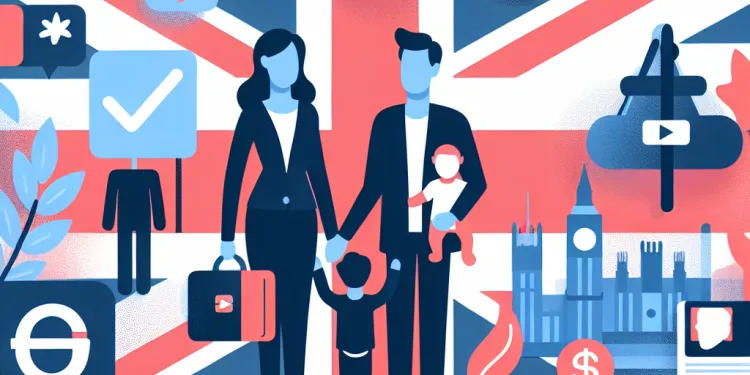
Navigating the Changes to Parental Leave Regulations
Relevance: 35%
-

Universal Credit Adjustments: What Recent Changes Mean for Claimants
Relevance: 34%
-
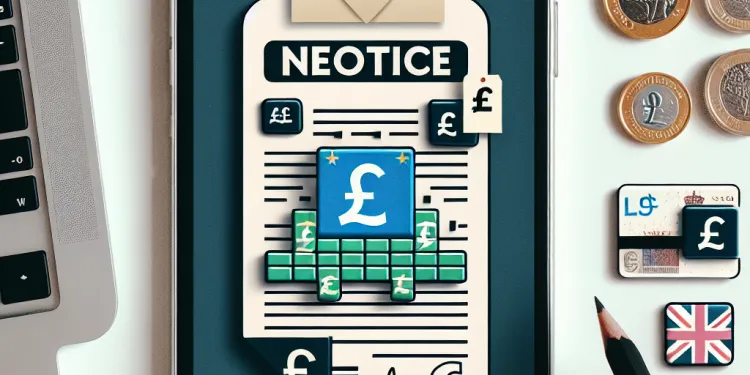
Has the notice period for eviction changed?
Relevance: 34%
-

How often do you need to change a stoma bag?
Relevance: 34%
-

How will dividend taxation change in April 2026?
Relevance: 33%
-

How often do wage rates change in the UK?
Relevance: 33%
-

How might these changes affect taxpayers on PAYE?
Relevance: 33%
-

How soon should I prepare for the 2026 tax changes?
Relevance: 32%
-

Can I change my NHS dentist?
Relevance: 31%
-

Should I change my passwords regularly?
Relevance: 31%
-

Are there implications for student loan repayments with 2026 changes?
Relevance: 31%
-

What should I do if my financial situation changes?
Relevance: 31%
-

Is UK air quality changing?
Relevance: 31%
-

Will changing my surgery date impact my waiting time?
Relevance: 31%
-

Can lifestyle changes replace the need for weight loss jabs?
Relevance: 30%
-

Are there changes regarding advertising e-cigarettes?
Relevance: 30%
-

Will the state pension amount change with the age increase?
Relevance: 30%
-

Are there further changes expected after 2026?
Relevance: 30%
-

Are climate changes affecting mosquito populations in the UK?
Relevance: 30%
-

Is there a change in National Insurance rates for 2026?
Relevance: 30%
-
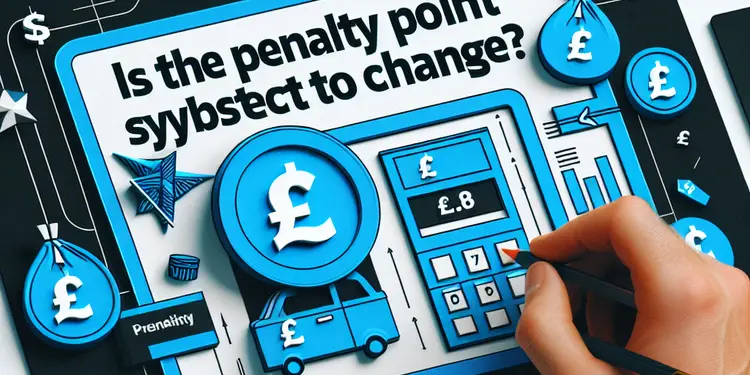
Is the penalty point system subject to change?
Relevance: 30%
-

Are there any changes to the driving license categories?
Relevance: 30%
-

Will changing my password secure my hacked account?
Relevance: 30%
-

Has the EV grant amount changed recently?
Relevance: 29%
-

What is the impact of the 2026 changes on grandparent visitation rights?
Relevance: 29%
-
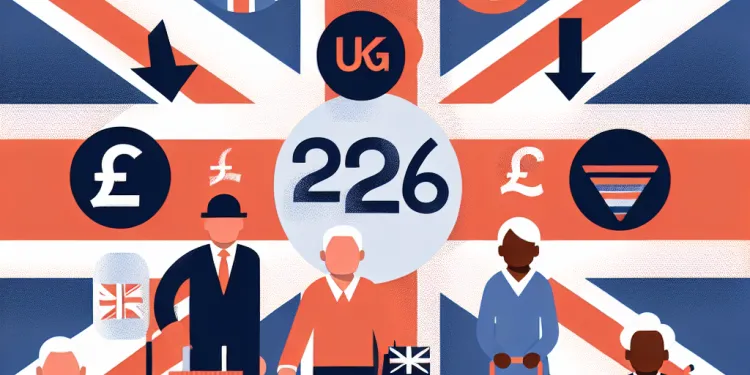
Who will be affected by the state pension age changes in 2026?
Relevance: 29%
-

Has the process for adoption changed in 2026?
Relevance: 29%
-

How will the changes in pension age affect retirement planning?
Relevance: 29%
-
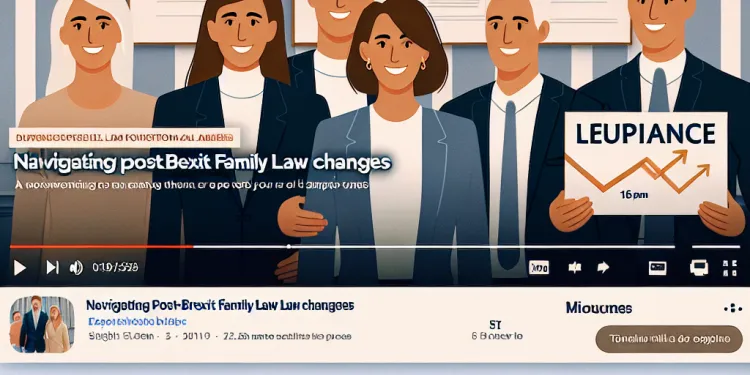
Navigating Post-Brexit Family Law Changes
Relevance: 29%
-

Will climate change affect the 2026 flu season?
Relevance: 29%
-

Can I take weight loss jabs without changing my diet or exercise?
Relevance: 29%
-

Are there lifestyle changes recommended with Baxdrostat?
Relevance: 28%
-

Can I change my DVSA Theory Test date?
Relevance: 28%
-

How have child custody laws changed in 2026?
Relevance: 28%
What to Do If Your Circumstances Change
Life is full of unforeseen events and changes. If you're in the UK and your personal circumstances change, it's important to understand how these changes can impact various aspects of your life, from your financial situation to your health care needs. Understanding what steps to take can help you navigate these changes smoothly and ensure you receive the support you are entitled to.
Changes in Employment
If you experience a change in employment status, whether it's a new job, a change in hours, or redundancy, you should inform HM Revenue & Customs (HMRC) and your local council. Changes in employment can affect your tax code, eligibility for benefits, and council tax calculations. If you become unemployed, you might be eligible for Universal Credit or Jobseeker's Allowance.
Changes in Family Structure
Changes in your family structure, such as marriage, divorce, a new child, or a child leaving home, can also have significant impacts. For marriage or civil partnership, you may need to update your tax status. For a new child, you can apply for Child Benefit and may need to update your family’s status for benefits like Child Tax Credit. Divorce might require notifications for financial arrangements and could affect benefits if you're receiving any.
Health Changes
If you experience a change in health, it could affect your entitlement to certain benefits. If you or a family member becomes ill or disabled, you may be eligible for Disability Living Allowance (DLA), Attendance Allowance, or Personal Independence Payment (PIP). Inform the Department for Work and Pensions (DWP) of any major health changes to ensure you receive the appropriate support.
Moving Home
Relocating within the UK also requires updates to various accounts. You should inform your local council to adjust your council tax bill and update your address with banks, utility providers, and the DVLA. If you receive benefits, notify HMRC and the DWP of your change in address to avoid disruptions.
Financial Changes
Significant changes to your financial situation, such as receiving an inheritance, experiencing a drop in income, or changes in savings, should be reported to ensure you are taxed correctly and receiving the benefits you're entitled to. Changes in financial status can affect eligibility for certain means-tested benefits.
Conclusion
Whenever there are changes to your circumstances, it’s essential to assess how they affect your current standing and responsibilities. Updating the relevant authorities helps in maintaining accurate records and ensuring that you receive the right support. Always seek guidance if unsure of the steps to take, either by contacting relevant governmental departments or seeking advice from a professional service.
What to Do If Things Change in Your Life
Life can surprise us with big changes. If you live in the UK and your life changes, you need to know what to do. This could be about your money or your health care. Knowing what steps to take can help you manage these changes better and get the help you need.
Changes in Your Job
If you get a new job, your work hours change, or you lose your job, you should tell HMRC and your local council. These job changes can affect your taxes and benefits. If you lose your job, you might be able to get help like Universal Credit or Jobseeker's Allowance.
Changes in Your Family
If you get married, divorced, have a new baby, or a child moves out, these changes are important. You might need to change your tax information if you get married. If you have a new baby, you can apply for Child Benefit. Divorce might change your money situation and benefits.
Health Changes
If your health changes, it might affect the benefits you can get. If you or someone in your family gets sick or disabled, you might be able to get Disability Living Allowance (DLA) or Personal Independence Payment (PIP). Tell the Department for Work and Pensions (DWP) about any big health changes to make sure you get the right help.
Moving to a New Home
If you move house in the UK, you need to tell people about your new address. Let your local council know, so they can change your council tax bill. Tell your bank, utility companies, and the DVLA too. If you get benefits, tell HMRC and the DWP about your move to keep everything on track.
Changes in Your Money
If you get a big inheritance or your income changes, tell the right people. This helps make sure your taxes are right and lets you get the benefits you deserve. Changes in money can affect if you qualify for certain benefits.
Conclusion
When things change in your life, you should think about how it affects you. Updating the right people helps keep your records correct and makes sure you get the right support. If you are unsure, ask for help from government offices or a professional service.
Frequently Asked Questions
What should I do if my employment situation changes?
If your employment situation changes, notify relevant parties, such as your bank for loan modifications or government agencies for benefits adjustments.
How can changes in my income affect my taxes?
Changes in income can impact your tax bracket, deductions, and credits, so consult with a tax professional to adjust your withholding or estimated payments.
What if my residency status changes?
Inform all necessary government and private institutions about your new residency status to ensure compliance with applicable laws and regulations.
How do changes in my family situation affect my benefits?
Changes such as marriage, divorce, or having children can affect your eligibility for certain benefits. Update your information with the relevant agencies.
What actions should I take if my health changes?
If your health changes, update your medical records and notify your insurance provider to ensure appropriate coverage.
Can a change in circumstances affect my insurance policies?
Yes, changes in circumstances like employment or health can affect your insurance policies. Contact your insurer to update your policy as needed.
What steps should I take if I relocate to a new area?
Notify your employer, update your address with relevant institutions, and research local services like healthcare and schools.
How can a change in financial situation impact my loans?
Changing financial situations may require loan repayment adjustments. Contact your lender to discuss options like refinancing or deferment.
What should I consider if my relationship status changes?
A change in relationship status may require updates to legal documents, beneficiaries, and shared accounts, as well as adjustments to living arrangements.
How can a change in employment status affect my retirement plans?
A change in employment can impact contributions to retirement accounts. Review and adjust your savings plan accordingly.
What if my dependents' status changes?
Changes in dependent status, such as a child reaching adulthood, can affect tax credits and insurance plans. Update your information promptly.
How should I handle a sudden change in my financial obligations?
Assess your budget, prioritize critical payments, and contact creditors to negotiate terms if necessary.
What steps should I take if my educational status changes?
If your education status changes, update relevant records with your employer and consider how it may affect any financial aid or loan obligations.
Can changes in personal circumstances affect my legal responsibilities?
Yes, changes such as marriage or having children can alter legal obligations. Consult legal counsel if needed to understand your responsibilities.
What are the implications of changing my tax filing status?
Changing your tax filing status can impact your tax return and liability. Consider consulting a tax advisor for guidance.
How do global events affecting my circumstances impact my obligations?
Stay informed about global events and seek advice from relevant organizations to understand possible impacts on your legal or financial obligations.
What if I experience a significant life event like a birth or death in the family?
Significant life events may necessitate updates to legal documents, beneficiary designations, and government records. Notify relevant parties to adjust plans.
How can a change in ownership or roles within my business impact me?
Changes in business ownership or roles may affect legal and financial responsibilities. Review your business agreements and consult with legal experts.
What should I do if I experience a major change in personal health status?
Update your health insurance and estate planning documents. Also, inform any parties who may need to know about your new medical needs.
What are the immediate steps to take if my living situation changes?
Notify service providers and update your address with financial institutions and government agencies. Consider local regulations in your new area.
What to Do If Your Job Changes
If your job changes, here’s what you can do:
- Tell people who need to know, like your boss or a teacher.
- Write down what’s different about your job.
- Ask for help if you need it. You can talk to someone you trust.
- Make a list of things you want to do next.
You can also use tools like a calendar to keep track and stay organized.
If you get a new job or stop working, tell the right people. This could be your bank if you have a loan, or government offices if you get benefits. They can help you if things change.
How do changes in my money affect my taxes?
If you make more money, you might have to give more money to the government. This is called taxes.
If you make less money, you might give less money to the government.
Here are some tips to help you:
- Use a calculator to help you figure out your taxes.
- Ask a parent or friend if you have questions.
- Look for websites that help you with tax questions.
When you earn more or less money, it can change how much tax you pay. This can also change special money rules that help lower your taxes. It’s a good idea to talk to a tax expert. They can help you figure out how much money to set aside for taxes.
What if my residency status changes?
If your residency status changes, don't worry. Here's what you can do:
- Tell the right people about the change. This might be your school, work, or government office.
- You might need to fill out a form or show some papers. Ask for help if you need it.
- Use a checklist to keep track of what you need to do.
- If you feel confused, ask someone you trust for help. A family member, teacher, or friend can support you.
Tell all the important government and private groups about your new home address. This makes sure you follow the rules.
Will my benefits change if my family changes?
Things like getting married, getting divorced, or having children can change your benefits. Tell the right offices about these changes.
What should I do if my health changes?
If you feel different or unwell, tell a trusted adult or a doctor. They can help you understand what is happening.
Write down how you feel and when it started. This will help remember details when you talk to someone.
Use pictures or apps to show how you feel. These can help you explain better.
Remember, it is okay to ask questions. It is important to speak up about how you feel.
If your health changes, tell your doctor and your insurance company. This will help make sure you get the right care and insurance.
Can changes in my life affect my insurance?
Yes, if things change like your job or health, your insurance might change too. Talk to your insurance company to update your plan if you need to.
What should I do if I move to a new place?
Moving to a new place can be a big change. Here are some simple steps to help you:
- Find a new doctor and dentist in your area.
- Register with a local school if you have children.
- Update your new address with the post office and tell the bank and other important places.
- Get to know your new neighbors.
- Explore the area to find shops, parks, and other places you might like.
If you need help, you can use a map app on your phone to find places. You can also ask friends or family to help you with the move.
Tell your boss, change your address with important places, and find out about local things like doctors and schools.
How can changes in my money affect my loans?
If you get more money, like a higher pay, loans might be easier to pay. If you have less money, like losing a job, it might be harder.
Here are some helpful tips:
- Make a budget. This helps you see what money you have and what you spend.
- Talk to your bank. They can sometimes help or change your loan payments.
- Use a calculator online. It can show how changes in money affect your loans.
- Check for phone apps that help with money. They can remind you to pay bills.
Sometimes, money problems can make it hard to pay back loans. Talk to your bank or loan company. They can help you find ways to make paying easier, like changing the loan or pausing payments for a while.
What should I think about if my relationship changes?
If your relationship changes, here are some things you can think about:
- Feelings: How do you feel? It’s okay to have big feelings. Talking to a friend can help.
- Money: Do you need to think about money? You might need to change your plans.
- Living Arrangements: Where will you live? You may need to find a new place to stay.
- Support: Who can help you? Friends, family, or a support worker can give advice.
When things feel too much, you can try:
- Writing down your thoughts.
- Making a simple plan.
- Using calming apps or music.
If you change your relationship status, like getting married or breaking up, you might need to change some important papers. You may also need to update who gets your things if something happens to you, and change any money or bank accounts you share. You might also need to change where you live.
How can changing jobs affect my plans for when I stop working?
If you get a new job or stop working, it can change your plans for when you retire. Here’s how it might change things:
- Saving Money: You might have more or less money to save for retirement. Check with your new boss or company if you can save for retirement there.
- Benefits: New jobs might have different benefits like health insurance or retirement plans. Ask what they offer.
- Money from Old Job: If you saved money in your old job, you might need to move it. Talk to someone who can help, like a financial advisor.
Here are some tips to help:
- Break things down into small steps, so it’s easier to understand.
- Use a calendar to keep track of important dates.
- Ask for help from family, friends, or a person who knows about money plans.
Getting a new job can change how much money you save for retirement. Check your savings plan and make changes if you need to.
What if my family or people I care for change?
When a child grows up and becomes an adult, it can change things like tax credits and insurance plans. It is important to update your information quickly.
Here are some tools and tips that might help:
- Ask for help from someone you trust if you find this hard.
- Write down important dates so you don’t forget.
- Use reminders on your phone or a calendar.
What should I do if my money problems change suddenly?
Look at your money. Pay the important bills first. If you need help, talk to the people you owe money to and see if you can make a different plan to pay them.
What should I do if my school or study changes?
If something about your school or study changes, here are some easy steps to follow:
- Tell your teacher or school helper about the change.
- Talk to your parents or a grown-up you trust.
- Keep a note of the changes in a notebook.
- Use a calendar to mark any important dates or meetings.
- If you need help, ask a friend or use a computer tool like a calendar app.
These steps will help you feel ready and stay organized when things change at school.
If you change schools or finish your education, tell your boss. Think about how this might change any money help or loans you have. You might need to pay more or less money back.
Can changes in my life change what I have to do by law?
Yes, big changes like getting married or having children can change your legal responsibilities. Talk to a lawyer if you need help to understand what you need to do.
What happens if I change how I do my taxes?
If you change how you do your taxes, it can affect how much money you pay. It can also change the money you get back.
Here are some ways changing your tax status can affect you:
- You might pay more or less tax.
- You might get a bigger or smaller refund.
- It might change what forms you need to fill out.
To help you understand, you can:
- Ask a tax helper or accountant.
- Use an online tax tool.
- Read simple guides about taxes.
Changing how you file your taxes can change how much tax you pay and what money you get back. It's a good idea to ask a tax expert for help.
How do big world events change what I need to do?
Here is an easier way to read and understand this question. We can think about it like this:
- Big World Events: These are things that happen all over the world, like changes in weather, big news stories, or money problems in many countries.
- My Situation: This is about you and how you live. It includes things like your home, school, or job.
- What I Need to Do: These are your responsibilities, like doing your homework, helping at home, or doing your job.
Sometimes, big things that happen around the world can change what you need to do in your life.
If you find it tricky to understand, ask someone you trust to help you or use a tool that reads text out loud.
Keep up with world news. Talk to organizations that can help you understand how these events might change your money or legal duties.
What if something big happens, like someone being born or dying in my family?
If a big change happens, like a new baby is born or someone in your family passes away, it is okay to feel many emotions.
Here are some ways to help:
- Talk to someone you trust about how you feel.
- Write or draw about your feelings.
- Spend time with friends or family.
- If you need more help, ask an adult. They can find a counselor or support group for you.
Big life events mean you might need to change important papers. This could be things like who gets your stuff when you're gone. Tell the right people so they can help you make these changes.
How can changes in who owns my business or what jobs people do affect me?
When new people take over a business, it can change things. It might affect how much money you make or what your job is.
If someone gets a new job in the business, it can change what work they do and what you do too.
Here are things that can help understand or manage changes:
- Talk to a friend or family member about the changes.
- Write down your feelings or questions about it.
- Use a calendar to keep track of any new important dates.
If who owns a business or what someone does in a business changes, it can change the rules about money and who is responsible for what. Look at your business papers and talk to a lawyer.
What should I do if my health changes a lot?
If you feel sick or like something is very different with your body, tell someone you trust. This could be a family member, friend, or teacher.
It is important to see a doctor. They can help you know what is happening and how to feel better.
If you have questions, write them down and ask the doctor. You can also take notes or ask someone to help you remember what the doctor says.
Using pictures or videos can help you understand what is going on with your health.
Make sure you change your health insurance and important papers. Tell people if they need to know about your new medical needs.
What should I do right away if my home life changes?
Tell your phone and internet companies that you've moved. Also, tell your bank and any government offices. Check the rules where you are moving to make sure you do everything right.
Useful Links
This website offers general information and is not a substitute for professional advice.
Always seek guidance from qualified professionals.
If you have any medical concerns or need urgent help, contact a healthcare professional or emergency services immediately.
Some of this content was generated with AI assistance. We’ve done our best to keep it accurate, helpful, and human-friendly.
- Ergsy carfully checks the information in the videos we provide here.
- Videos shown by Youtube after a video has completed, have NOT been reviewed by ERGSY.
- To view, click the arrow in centre of video.
- Most of the videos you find here will have subtitles and/or closed captions available.
- You may need to turn these on, and choose your preferred language.
- Go to the video you'd like to watch.
- If closed captions (CC) are available, settings will be visible on the bottom right of the video player.
- To turn on Captions, click settings .
- To turn off Captions, click settings again.
More Items From Ergsy search
-

What if my circumstances change?
Relevance: 100%
-

What should I do if my circumstances change?
Relevance: 91%
-

Do I have to repay the Winter Fuel Payment if my circumstances change after I've received it?
Relevance: 77%
-

Are there changes to the eviction process?
Relevance: 38%
-

Have the rules for changing a child's name in family court changed in 2026?
Relevance: 36%
-

Can SEND status change over time?
Relevance: 36%
-

Navigating the Changes to Parental Leave Regulations
Relevance: 35%
-

Universal Credit Adjustments: What Recent Changes Mean for Claimants
Relevance: 34%
-

Has the notice period for eviction changed?
Relevance: 34%
-

How often do you need to change a stoma bag?
Relevance: 34%
-

How will dividend taxation change in April 2026?
Relevance: 33%
-

How often do wage rates change in the UK?
Relevance: 33%
-

How might these changes affect taxpayers on PAYE?
Relevance: 33%
-

How soon should I prepare for the 2026 tax changes?
Relevance: 32%
-

Can I change my NHS dentist?
Relevance: 31%
-

Should I change my passwords regularly?
Relevance: 31%
-

Are there implications for student loan repayments with 2026 changes?
Relevance: 31%
-

What should I do if my financial situation changes?
Relevance: 31%
-

Is UK air quality changing?
Relevance: 31%
-

Will changing my surgery date impact my waiting time?
Relevance: 31%
-

Can lifestyle changes replace the need for weight loss jabs?
Relevance: 30%
-

Are there changes regarding advertising e-cigarettes?
Relevance: 30%
-

Will the state pension amount change with the age increase?
Relevance: 30%
-

Are there further changes expected after 2026?
Relevance: 30%
-

Are climate changes affecting mosquito populations in the UK?
Relevance: 30%
-

Is there a change in National Insurance rates for 2026?
Relevance: 30%
-

Is the penalty point system subject to change?
Relevance: 30%
-

Are there any changes to the driving license categories?
Relevance: 30%
-

Will changing my password secure my hacked account?
Relevance: 30%
-

Has the EV grant amount changed recently?
Relevance: 29%
-

What is the impact of the 2026 changes on grandparent visitation rights?
Relevance: 29%
-

Who will be affected by the state pension age changes in 2026?
Relevance: 29%
-

Has the process for adoption changed in 2026?
Relevance: 29%
-

How will the changes in pension age affect retirement planning?
Relevance: 29%
-

Navigating Post-Brexit Family Law Changes
Relevance: 29%
-

Will climate change affect the 2026 flu season?
Relevance: 29%
-

Can I take weight loss jabs without changing my diet or exercise?
Relevance: 29%
-

Are there lifestyle changes recommended with Baxdrostat?
Relevance: 28%
-

Can I change my DVSA Theory Test date?
Relevance: 28%
-

How have child custody laws changed in 2026?
Relevance: 28%


